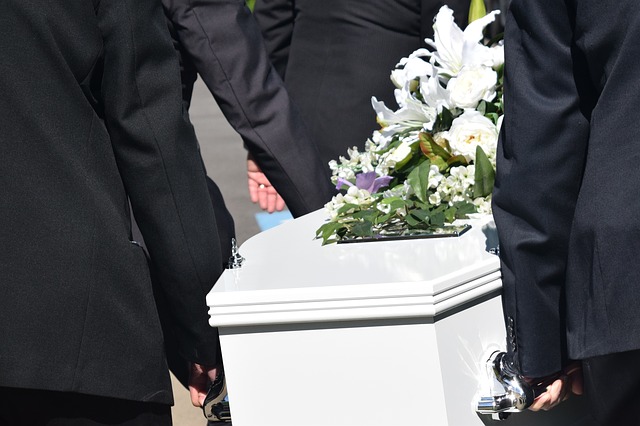Last Updated on: 22nd November 2023, 09:02 am
The SunLife Cost of Dying report – the UK’s leading report into funeral costs – shows that following a rise of 4.7% in just a year, the average funeral in the UK now costs £4,078.
In the past decade, funeral costs have risen more than 70%, that’s more than three and a half times the increase in house prices and petrol prices.
If house prices had risen at the same rate as funeral costs, the average house would cost almost £100,000 more than it does today. If funerals continue to rise at the same rate, in five years, the average cost will be almost £5,000 (£4,944).
And the costs don’t stop there – organising and paying for a funeral actually costs even more because there are also costs associated with the send-off (£1,928) and the cost of hiring a professional (£2,899). When these are added to the cost of the funeral, the total cost of dying is almost £9,000 (£8,905), a rise of 1.2% over the past year.
Regional differences
As has been the case every year we have run the Cost of Dying report, there are significant regional variations in funeral costs.
London remains the most expensive place to die, with the average funeral costing £5,951; 46% more than the national average of £4,078 and almost double the cost of a funeral in Northern Ireland (£2,982), where funeral costs have dropped 9% in a year. Wales has also seen a drop –costs are down 4.6% to £3,461.
SunLife’s Funeral Calculator is a quick and easy way to find out how much funerals cost in your area
Cutting the cost
But the good news is, while the average funeral costs £4,078, there are things you can do to cut the cost.
For example, having a direct cremation -where the body is cremated immediately after death, without a funeral service – costs £1,835 on average,less than half the cost of a standard cremation and as little as £1,454 in some parts of the country.
You can also cut costs by not having a wake, or holding it at home. You can have a cheaper coffin – prices start from as little as £100 for a cardboard coffin*, and embalming the body costs around £100 but is not essential. Many people would rather not have flowers at their funeral, which saves around £150 and you can save a lot of money by not having a wake, or holding a gathering at home instead. Those who hold a wake and pay for catering spend £655 on average.
You can also choose not to have a hearse, or ask for fewer pallbearers (or none if you wish to do it yourself).
“Many people worry that having a cheaper funeral is disrespectful,” says Dean Lamble, CEO at SunLife, “but our research shows that the vast majority of us do not want money wasted on a fancy funeral.
“In fact more than one in three people who have recently organised a funeral said they would want their own to be ‘as cheap as possible.’ One in six said they would like a direct cremation and one in 12 said they would prefer a woodland burial just one in 50 said they would want a lavish affair.”
Beverley Goulbourn, 71, paid around £3,800 for her husband’s funeral, but says she doesn’t want friends and family wasting money on hers:
“I have organised a very basic funeral for myself and paid for it. It has cost me around £1,500. I am not religious and I don’t want all that money wasted on a funeral – I’d rather my family had a good old knees up.”
Janet Lewis’ mother Ruby donated her body to science. When she knew she was dying, she researched how to do it and got all the relevant paperwork signed. The cost was £150 for the body to be stored in a refrigerated mortuary until the university picked it up, plus around £600 on food for a memorial/gathering for friends and family. “Mum was a very practical person with a waste not want not sort of attitude. She was also eco minded, and said it seemed a waste of time, money and energy having a funeral when her body could be put to good use.”
Financial provision
According to this year’s report, 58% made specific financial provision to pay for their funeral before they died. Of those, 29% had bought a prepaid funeral plan (up from 28% in 2016), 15% had a life insurance plan in place (down from 16%) and 15% had a guaranteed over 50 plan (up from 14%).
Of those who made specific provision for their funeral, 80% had left enough to cover the entire cost.
For one in nine families, finding the money to pay for their loved ones’ funeral caused them financial problems, down from one in seven in 2016. This group had to find, on average, £3,294 and to pay for this:
- 27% had to borrow money from a friend or relative
23% had to put the costs onto a credit card
13% had to get a loan
12% worked out an instalment plan with the funeral director
12% had to sell belongings to cover the cost. - Dean concludes: “Our research shows that while the majority of us are making financial provision for our funerals, we are not leaving enough to cover the full cost, causing financial stress for those left to cover the shortfall.
- “But the truth is, in many cases, families are struggling to cover the cost of an expensive send off when the deceased would have been quite happy with a low key affair. That is why, as well as making financial provision, it is just as important to talk to you family about what type of funeral you want. Because you don’t want you family thinking they need to spend thousands of pounds on a fancy funeral in order to give you the send-off you deserve, when all you actually want is a direct cremation followed by a pint down the pub.”
- Our free funeral calculator can help you work out how much you might need to put aside for your own funeral
- Our Perfect Send Off tool is an easy way to record your funeral wishes for free, while our Digital Legacy tool helps you work out how to put plans in place for what happens to your digital life when you die.
- Full report: Cost of Dying 2017






